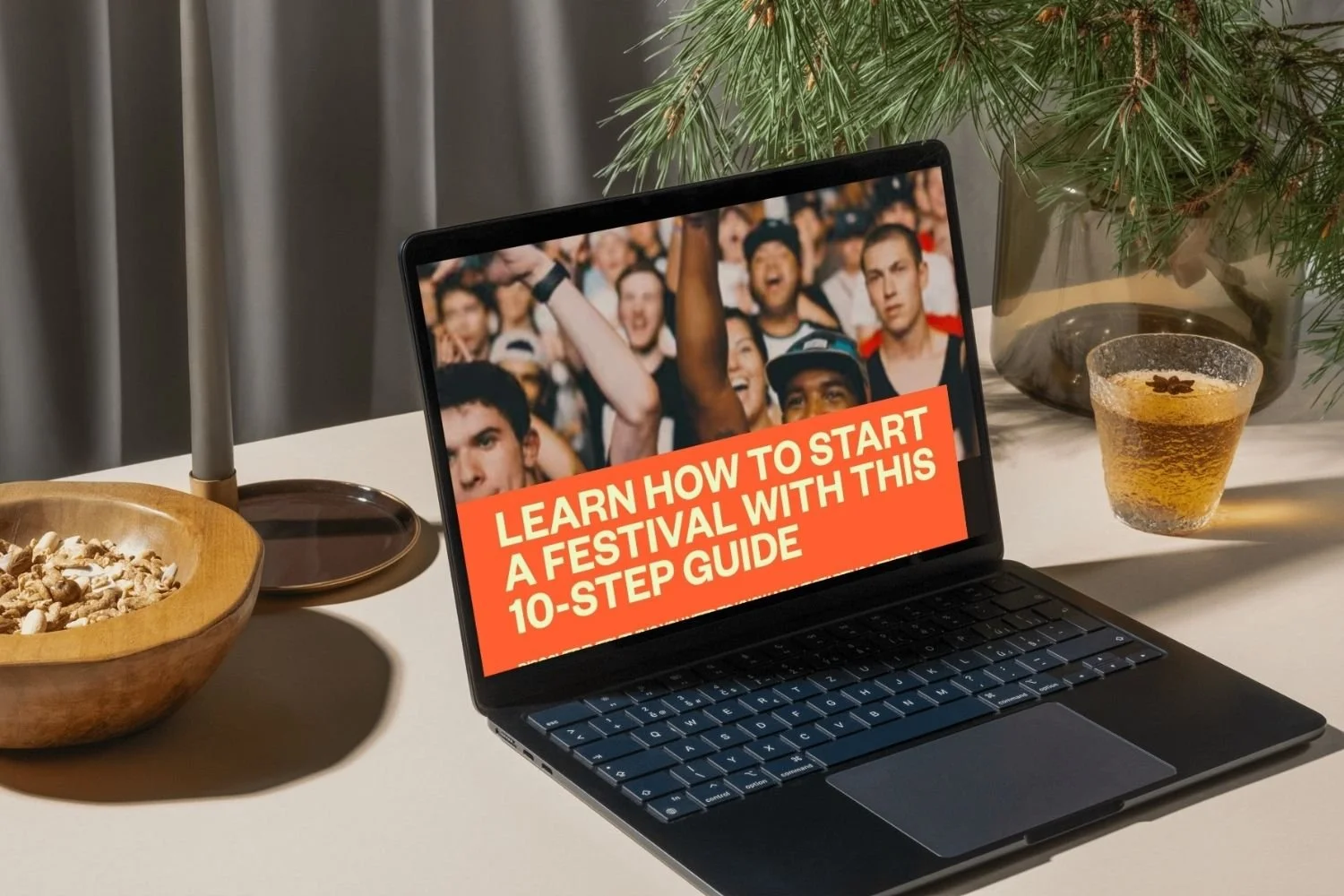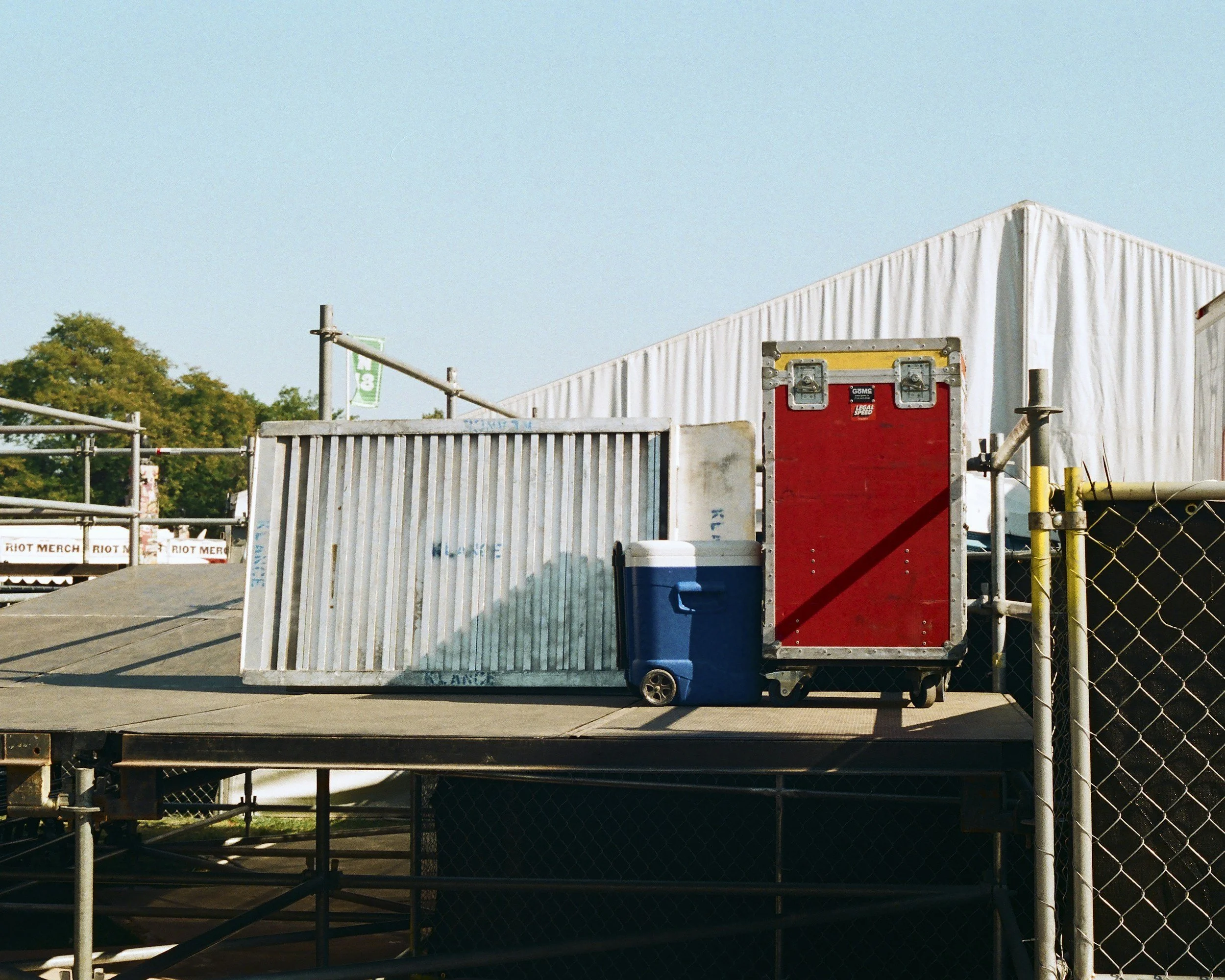How to Start a Festival: Practical Tips for 2025 Organizers
Festival Planning Checklist - perfect for Music and arts festival organizers
Festivals are where creativity meets logistics.
Every year, brilliant organizers launch weird and wonderful new festivals — from food and wine to music, art, and community culture. But behind the magic, the reality is simple: success depends on structure.
In this article, I’ll share the three most important steps to starting your own festival in 2025, plus free resources from Eventbrite to help you dig deeper.
1. Start With SMART Goals
Every festival begins with a vision, but goals turn that vision into a plan. Whether it’s drawing 5,000 attendees in year one or breaking even financially, your goals should always be SMART: Specific, Measurable, Attainable, Relevant, and Time-bound.
Without SMART goals, it’s almost impossible to know if your event succeeded. With them, you can set benchmarks, secure funding, and keep your team aligned.
2. Build a Realistic Budget
Festivals collapse when money runs out. A realistic budget covers more than headline acts and catering — you’ll need to account for infrastructure, permits, security, medical services, insurance, and waste management.
A simple rule: assume 20% more in costs and 20% less in income than your most optimistic plan. That buffer is what protects you when things don’t go exactly to plan (and they never do).
3. Choose a Venue That Works Harder Than You Do
The right venue isn’t just about capacity. Think access, transport, utilities, and permits. Outdoor sites, for example, bring atmosphere — but they also mean higher costs for fencing, toilets, power, and weather contingency.
If your festival relies on inclusivity and access, check early whether the venue meets accessibility requirements. It’s far easier to choose the right location upfront than to retrofit solutions later.
Why Systems Matter More Than Spectacle
Anyone can dream up a brilliant festival concept. What separates the ones that thrive is clear and established systems:
✷ Clear project management tools
✷ Vendor and staff checklists
✷ Risk and contingency planning
✷ A realistic timeline for bump-in, delivery, and bump-out
These are the unglamorous but essential foundations that let creativity shine.
Of course, knowing you need systems and actually setting them up are two different things. That’s where the right tools make all the difference — Event Kit gives you the planning structure behind the scenes, and Eventbrite provides the ticketing and visibility out front.
Together, they cover the two sides of festival delivery: organised systems and a simple, trusted way to sell tickets.
Why I Recommend Eventbrite for New Festival Organizers
If you’re launching your first festival, you don’t need a complicated ticketing platform. You need something simple, trusted, and scalable. That’s why I recommend Eventbrite.
It’s the mainstay of ticketing for good reason — in 2022 alone, over 200 million people searched for things to do on Eventbrite, and nearly 30% of tickets sold came directly from Eventbrite discovery.
I even signed on as an affiliate because I’ve seen how often it’s the right first step — no over-complication, no heavy learning curve.
Eventbrite also shares valuable free resources.
Their How to Start a Festival: 10-Step Guide covers everything from staffing and budgets to marketing. It’s a great starting point if you’re serious about bringing your idea to life.
Want more free Eventbrite insights? Download here!
Event Marketing Playbook (New organizers learning to promote their events)
Guide to Selling Tickets Online (Anyone launching their first paid event)
Nonprofit Fundraising Toolkit (guide for nonprofits and community groups)
Shop Event Kit
Created by an award-winning event pro who’s delivered festivals for 100,000+ attendees. No subscriptions, no locked platforms — just real templates in Word and Excel you can use today.
Final Thought: The Real Takeaway
Starting a festival isn’t just about inspiration — it’s about building a foundation that can withstand the realities of budgets, logistics, and risk.
If you’re ready to launch your festival in 2025, set SMART goals, build a realistic budget, and choose a venue that does half the work for you. Then, put systems in place to support every moving part.
Because the truth is simple: festivals don’t succeed on vision alone. They succeed when vision meets structure.
PS: Affiliate Note
I’m proud to be an Eventbrite affiliate because it’s a platform I’ve seen work time and again for new and early-career organizers. This post contains affiliate links. I earn a commission from qualifying purchases, at no cost to you.
You Might Also Like
Meet Your Mentor
Hi, I’m Rachella — founder of Event Kit, and an Event Consultant with 25+ years of experience running world-class festivals and public events. I started Event Kit because I knew there had to be a better way. These are the tools and tips I wish I’d had when I was starting out, and now I’m sharing them with you.
EVENT KIT LIBRARY
Guides & Tutorials: Expert Insights & Event Planning Inspiration
Your go-to for practical event planning advice, from beginner basics to smart professional development.

















